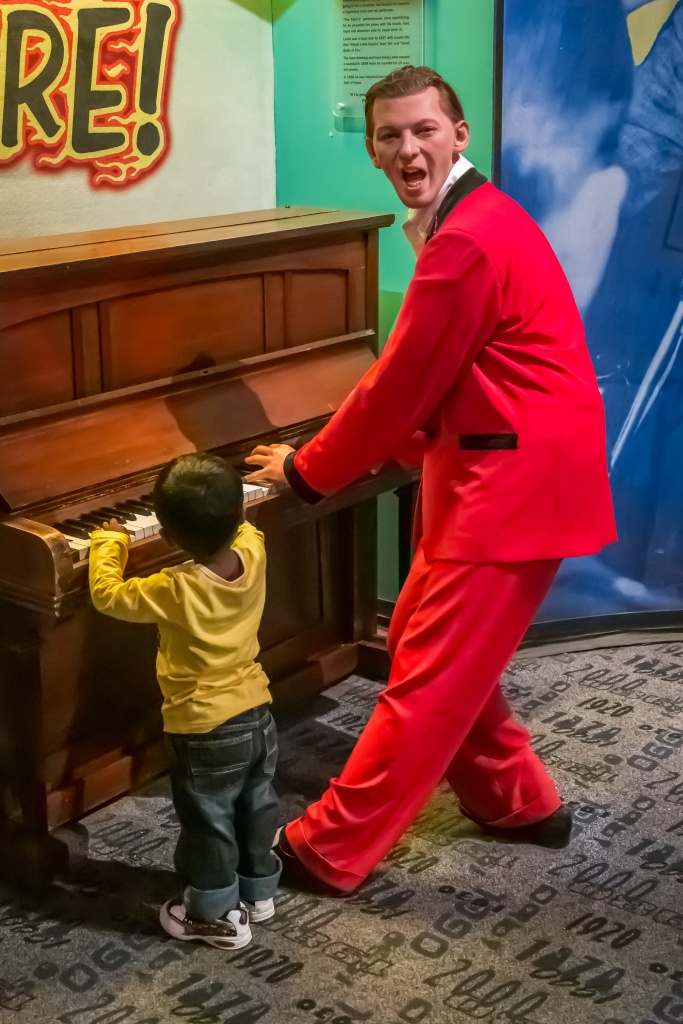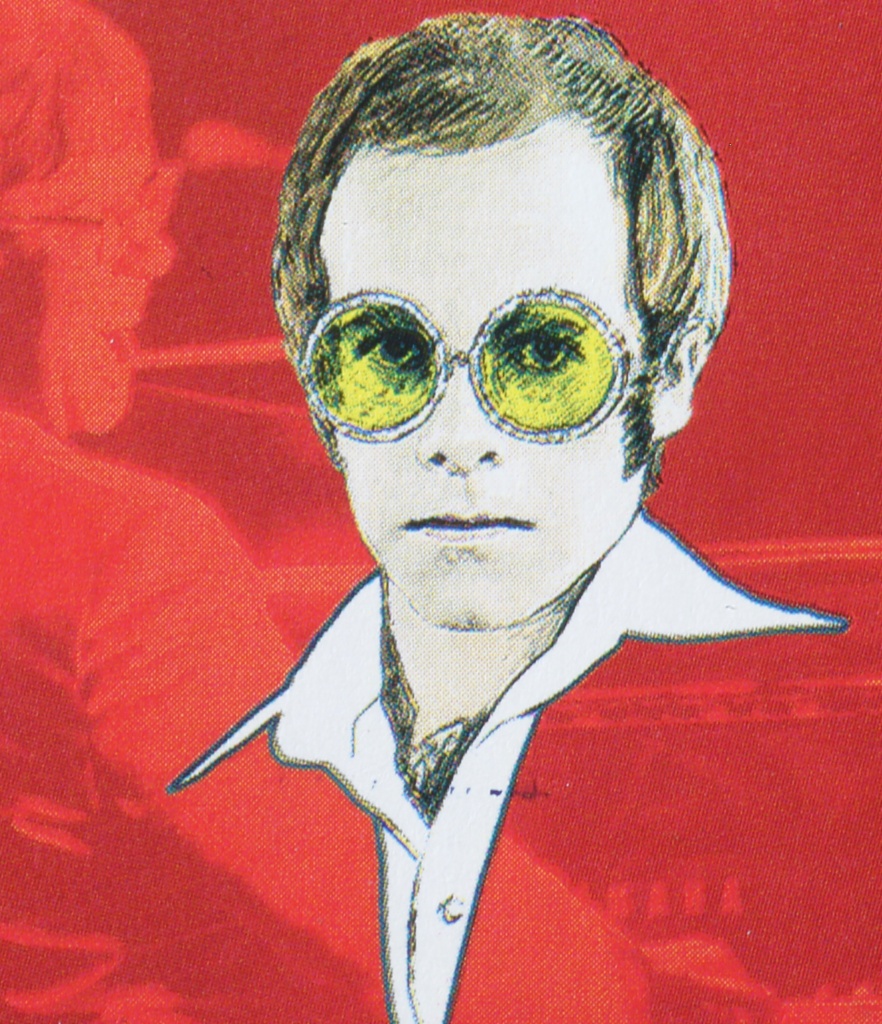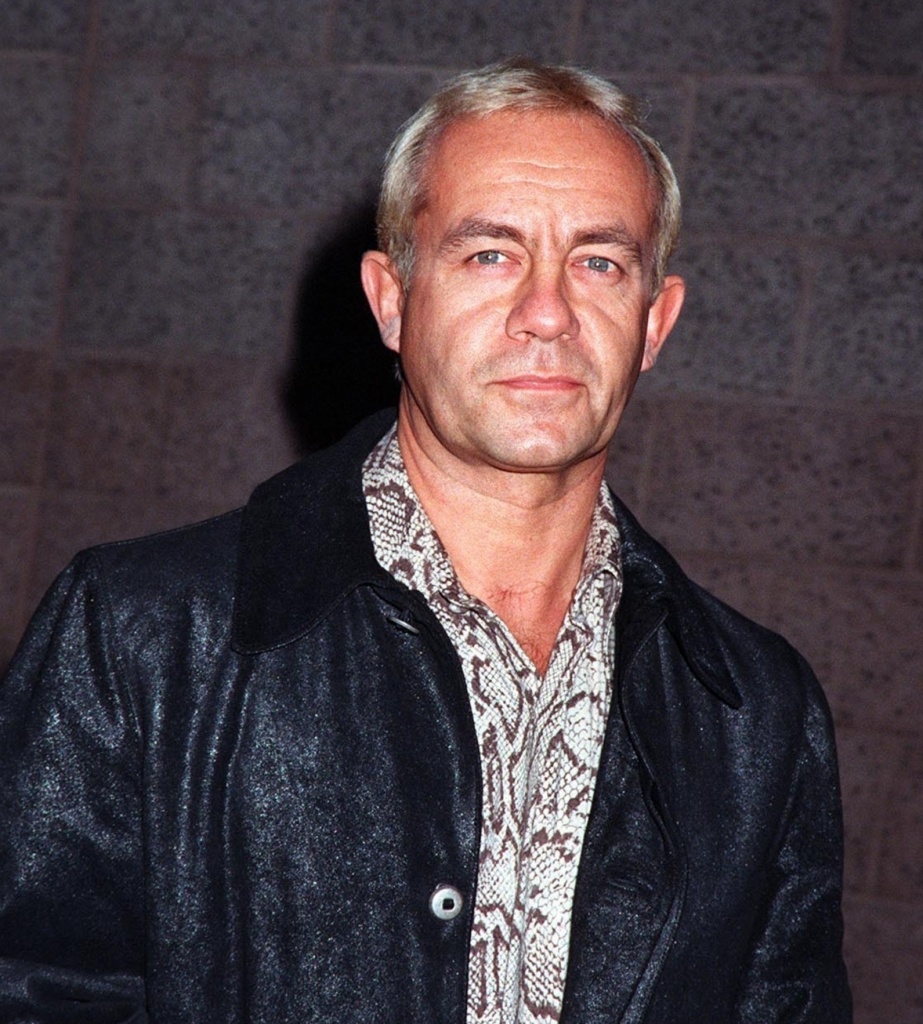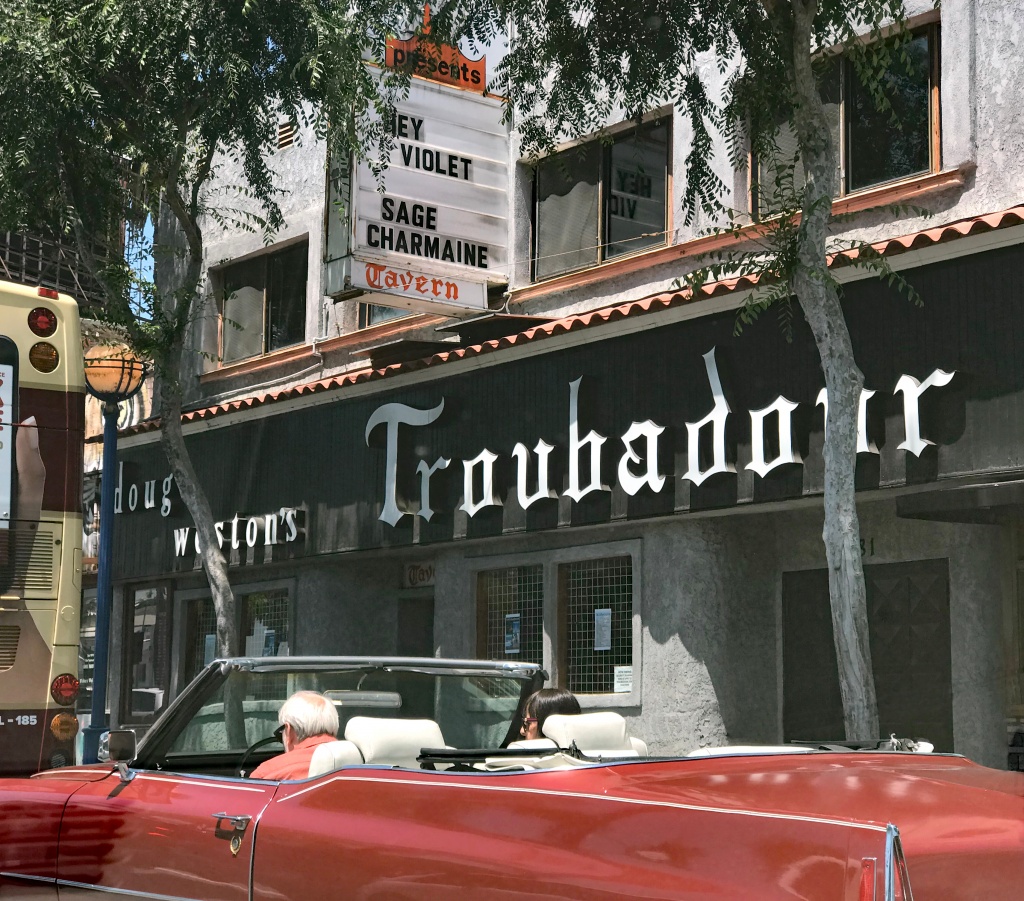Published June 22, 2021

Elton John turned America on its head after getting everything the wrong way round.
So how did he do it?
A tad too late for The British Invasion, America wanted American acts.
Elton wanted to break big in Britain, probably because he knew where to shop.
But his rockstar-handsome British writing partner wanted to be a cowboy.
Is that it?
Let’s take a look.
1. Reginald Dwight sits upright, uptight, out-of-sight
The only thing young Reginald Dwight wanted to be when he grew up was Little Richard.
Or Jerry Lee Lewis. (Plan-B, in case something went wrong with Plan-A.)
But the young piano player with a cheeky grin was nobody’s idea of a future rock ‘n roll star.
Despite being a naturally gifted piano player who’d started formal lessons aged seven.
And who, by age 11, was granted a scholarship to the Royal Academy of Music.
Obliged by his strict upbringing to be a good student, Reg swapped Little Richard for Frédéric Chopin…
…Jerry Lee Lewis for Johann Sebastian Bach.
Allowing Beethoven to rule over rather than roll over.
For five long years.
While his itching feet stayed firmly under the piano, never on it.
In sensible shoes, to match a restrained attitude.
And nursing a frustration as explosive as the rock ‘n roll he loved.
To the point that, as the countdown to his final exams began, his piano stood silent.
Rocket Man had taken off.

2. Long John, Bluesology, and letting the heartaches end
Reginald Dwight, organ player with Bluesology, stood motionless on stage, wearing a caftan, some bells, and a chain around his neck, as eccentric blues legend, Long John Baldry, belted out his awful #1 hit song ‘Let the Heartaches Begin’.
Backed not by Bluesology, but by a massive tape machine.
What?
Baldry had a great talent for spotting talent and had become a friend and mentor to Reg.
Friends with Paul McCartney, Baldry had shared the stage with both The Beatles and The Rolling Stones; a living encyclopedia of the blues, he became a legend’s legend.
“He was the greatest 12-string guitarist the UK has ever produced.” — Elton
But his middle-of-the-road hit single had blown a hole through his backing group.
Their regular audience of blues-loving young mods had been replaced by the supper club set, chicken and fries falling from the mouths of well-to-do women as they screamed, making a beeline for the stage in a stiffly middle-aged, but unstoppable tinkle of passion.
Eww.
Nobody knows if Reg ever formed the words, “Somebody save my life tonight – please!” in his mind, but we do know that Elton’s acclaimed autobiography “Me”, tells the story of a gifted rhythm and blues band put in an extremely awkward position.
Besides, there was no way to reproduce the orchestrated sound. Or female chorus.
So they stood there instead, like lemmings before the leap.
With aching heart, Elton leapt.

3. Enter the brown dirt cowboy (wheelbarrow operator, UK)
By the age of 17, Bernie Taupin had developed an optimistically casual attitude to life.
Apart from carting dead chickens around his father’s farm in north-Lincolnshire, he had ended a planned career as a journalist in favor of roaming country roads, playing pool, meeting girls, and drinking heartily.
It was only a matter of time before he became friends with Rod Stewart.
He also wrote poetry.
A lot.
In 1967, Reg Dwight and Bernie Taupin were two of many hopefuls who answered an advertisement placed in New Musical Express.
Liberty Records wanted new talent.
Unlikely rockstar Reginald showed up, played some favorites, and essentially flopped.
When he shyly said that he could write songs, A&R man Ray Williams’ ears pricked up.
“But not the words,” Reg added.
Williams sat back and sighed.
Lifting an envelope from his desk, he handed it to Reg, probably as a gesture.
Bye, Reg Dwight.
On the train home, Reg opened the envelope and read the beautiful mind of Bernie Taupin.
They clicked.
Whether fate decreed stardom or starvation – they were already in it together.

4. Elton John and Bernie Taupin – “We’re starving!”
Reg found that he could write melodies easily for the majority of Taupin’s lyrics; and he started doing so before they met.
When they did meet, they hit it off immediately.
Soon, Bernie was living with Reg and his mother and stepfather in a tiny apartment. They slept in bunkbeds and bonded over their love of Bob Dylan, Jimi Hendrix, and others.
Taupin was a fish out of water in London and a bit overwhelmed. Elton, sensing this, developed a big brother protectiveness for the teenager others saw as a “country bumpkin”.
Even though Elton was only 20 himself.
Although awed by Reg’s talent, and perhaps missing the security of a steady wheelbarrow, his new friend’s kindness boosted Bernie’s confidence and creativity.
“He became the brother I never had,” Elton later said.
Neither was making money, so they scraped by, scrounged up, and kept honing their talents.
In 1968, they managed to join DJM Records as staff songwriters, turning out occasional songs for stars such as Lulu, Roger Cook, and Edward Woodward.
Later, somebody suggested they should perform their own songs.
They agreed; but only as long as they could do everything the wrong way round.
- Rockstar handsome Bernie and shy, cherubic Reg, chose Reg as the frontman.
- Reg took the name ‘Elton’ from Bluesology bandmate Elton Dean; and the name ‘John’ from Long John Baldry – then fixed them together the wrong way round.
- ‘Elton John’ hoped to have hits in Britain, without a thought for the US.
What could go right?

5. Drifting slowly through an empty sky
Elton’s first single ‘I’ve Been Loving You’ resulted in nobody caring how he felt.
His second, the now classic ‘Lady Samantha’ didn’t fare much better, but did become a ‘turntable hit’, attracting the attention of industry people, such as producer Gus Dudgeon, and rock critics.
His third single: ‘It’s Me That You Need’ saw critics predicting another radio hit.
They were wrong.
His first album ‘Empty Sky’ didn’t fare much better; and wasn’t even released in the US.
But there was a learning curve happening.
Elton and Bernie saw ‘Skyline Pigeon’ as representing a new level for them as songwriters.
They listened. Looked at each other. And never looked back.
For the second album ‘Elton John’, admirer Gus Dudgeon was brought on board.
The stunning ‘Border Song’ was released in the UK, but also failed to chart.
In an interesting turn, American rock group ‘Three Dog Night’ recorded both ‘Lady Samantha’ and ‘Your Song’ as album tracks.
They decided not to release ‘Your Song’ as a single, so that Elton could “have a go” with it.
An American ray of sunlight in their empty sky.

6. John Elton – Sorry, Elton John – has arrived!
Bernie was excited about a gig at the tiny but trendy Troubadour Club in LA, USA.
Elton wasn’t as impressed.
It seemed a long trip just to (hopefully) get a nice write up, or impress some industry folk.
Concentrating on the UK seemed a lot more sensible. And he knew the shops.
Then Dick James said he’d negotiated Elton’s payment up from $150 to $275.
Meaning Elton could stop pressing his nose against shop windows and actually go inside.
SOLD!
Meanwhile, US record executive, Russ Regan, heard the ‘Elton John’ album.
“When I heard it for the first time, I absolutely flipped out. I looked up at the sky and said, ‘Thank you, God!’ I thought it was one of the best albums I’d ever heard.” — Russ Regan.
Phone calls were made.
Influential people needed to get their asses over to the Troubadour and see this John Elton guy.
Sorry – Elton John guy.
Elton was made the headliner, even though nobody knew who he was.
Music publisher, David Rosner, had 3000 UK copies of the ‘Elton John’ album shipped to the US for distribution to radio stations – months before a US release.
When Elton, Bernie, and their backing group finally climbed stiff-legged from the economy flight onto US soil, they were greeted by a bizarre sight.
A red London double-decker bus with a banner proclaiming: ‘Elton John has arrived!’
All beautiful, small-scale hype, based on upbeat energy and enthusiasm.
But it created an incredible vibe.
Then came the gig.

7. Don’t Go Back, Honky Cat! The Troubadour goes BOOM
On August 25, 1970, Elton John opened at the Troubadour nightclub.
With a capacity of around 300, curious audience members included Neil Diamond (who agreed to introduce Elton), highly influential Times critic Robert Hilburn, David Crosby, Stephen Stills and Graham Nash, Quincy Jones and Peggy Lipton, Linda Ronstadt, Brian Wilson and Mike Love, Van Dyke Parks, Don Henley and Randy Newman.
No pressure, then.
Probably expecting an earnest British singer-songwriter, the audience was staggered by an explosion of Rock ‘n Roll not seen since the days of Little Richard and Jerry Lee Lewis.
Elton was making sure little Reginald Dwight’s dreams came true.
Relentlessly pounding the piano, he threw himself into the air like an acrobat, kicked away his stool, and dropped to his knees.
Never missing a beat or a Bernie Taupin line of poetry.
“It was like a ball of fire hit the Troubadour. When he got to ‘Take Me to the Pilot’ the place levitated.” — Linda Ronstadt.
When Elton came down again and played a slow song, they gasped.
Suddenly Little Richard and Jerry Lee Lewis were George and Ira Gershwin.
Not possible – but happening.
LIVE
When it was over, the audience were as physically and emotionally exhausted as the star.
Because that’s what he was now. All at once and unequivocally.
A STAR
Proclaiming that Elton John would soon become one of rock’s biggest and most important figures, the Times critic Hilburn began his review with one simple word:
“REJOICE”
Nobody would ever again think of the name ‘Elton John’ as being the wrong way round.
Apart from Groucho Marx, obviously.

8. Hello Yellow Brick Road
Elton played eight shows in six nights at the Troubadour.
He became a sort of instant underground legend until the US release of ‘Elton John’ a few months later.
It reached the US Billboard Hot 100 #4 position.
‘Your Song’ reached #8 – a surprise hit, having been released as the B-side of ‘Take Me to the Pilot’, and played relentlessly by DJs who fell in love with it.
It also hit the #7 position on the UK chart.
Elton John never pressed his nose against a shop window again.
Apart from once in 1978, when Saks closed early.
Following up on further early achievements, Elton went on to muster up:
7 consecutive #1 US albums
27 Top 10 US singles; 9 #1 US singles; 100 million singles worldwide
33 million copies of ‘Candle in the Wind 1997’
2 percent of global record sales; 1 in every 50 records bearing his name
300 million record sales worldwide
250,000 pairs of sunglasses (although there may be more on top of his wardrobe)
Around $600 million raised to combat AIDS and for other causes (he supports 64 charities; 33 causes)
$500 million estimated net worth
Bernie Taupin owns three pairs of cowboy boots and a 10-gallon hat.
They still write songs together.
Not bad, Honky Cats.
Sources: Me: Elton John Official Autobiography by Elton John – published by Henry Holt and Co., 2019; Captain Fantastic: The Definitive Biography of Elton John in the ‘70’s by David John DeCouto – published by Triple Wood Press, 2016; Elton: The Biography by David Buckley – published by Andre Deutsch, 2007.